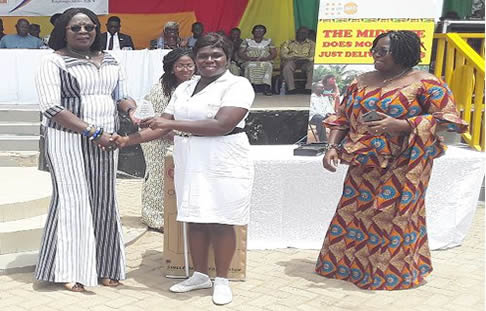
GRMA appeals for equity in distribution of infrastructure, logistics
The Ghana Registered Midwives Association (GRMA) has appealed to the government and other stakeholders in the health sector to ensure equity in the distribution of health infrastructure, basic social amenities and logistics, particularly, in deprived areas where midwives work to better the lives of rural women and children.
According to the GRMA, the provision of such facilities and logistics, coupled with some incentives, would enable members to offer their best to the people, particularly those in deprived communities.
The President of the GRMA, Madam Netta Ackon, made the appeal at the national celebration of this year’s International Day of the Midwife (IDM) in Bolgatanga in the Upper East Region yesterday on the theme “Midwives: “Defenders of women’s right.”
Concerns
Madam Ackon expressed concern over delays by the National Health Insurance Authority (NHIA) to reimburse health facilities for services rendered to patients.
“Independent midwives have worked for several months, and by virtue of the free maternal health care, are running bankrupt and selling off their personal belongings to continue serving patients because the NHIA claims are not being paid,” she added.
The president further claimed that even where payments were made, a percentage of the money was deducted without explanations which, she said, did not augur well for smooth healthcare delivery.
Commendation
The Upper East Regional Director of the Ghana Health Service, Dr Winfred Ofosu, commended midwives for their dedicated and selfless service to the people over the years despite the challenging environment they worked in.
According to him, institutional skilled delivery in the Upper East Region was 70.6 per cent in 2018 while post-natal care stood at 71.3 per cent.
The director added that 79.1 per cent of pregnant women in the region attended antenatal care at least four times before delivery while institutional maternal mortality ratio declined from 137.5 per 100,000 live births in 2017 to 91.4 per 100,000 live births in 2018.
Similarly, stillbirth rate declined from 1.3 per 1,000 live births in 2017 to 1.2 per 1,000 live births in 2018.
The Country Representative of the United Nations Population Fund (UNFPA), Mr Niyi Ojuolape, said the organisation had provided support to over 700 midwifery schools globally, including Ghana.
And through its Maternal and Thematic Health Fund, it had also supported over 40 midwifery schools with books, training equipment and materials.
Advice
The Upper East Regional Minister, Madam Paulina Abayage, advised members of the GRMA to always use dialogue to resolve issues rather than embarking on strikes and demonstrations to drive home their demands.
On staffing, she said, the region had this year advertised for the recruitment of 99 medical officers and 427 nurses and midwives to improve health delivery services in the area.
In a speech read on his behalf, the Minister of Health, Mr Kwaku Agyeman-Manu, said the ministry was collaborating with universities to run undergraduate and graduate programmes for midwives to raise their academic profiles.
He said the government was also committed to deploying more midwives to deprived communities to serve at Community-based Health Planning Services (CHPS) compounds where currently, 14.8 per cent of midwives were serving.
Fourteen midwives and nurses who distinguished themselves in their respective areas of work were awarded at the event.





